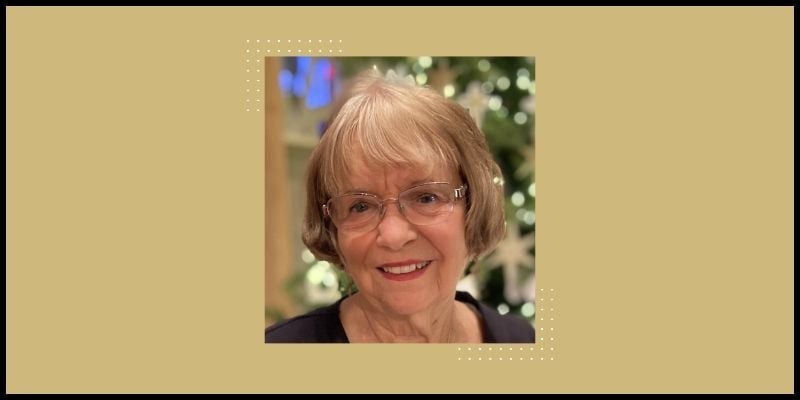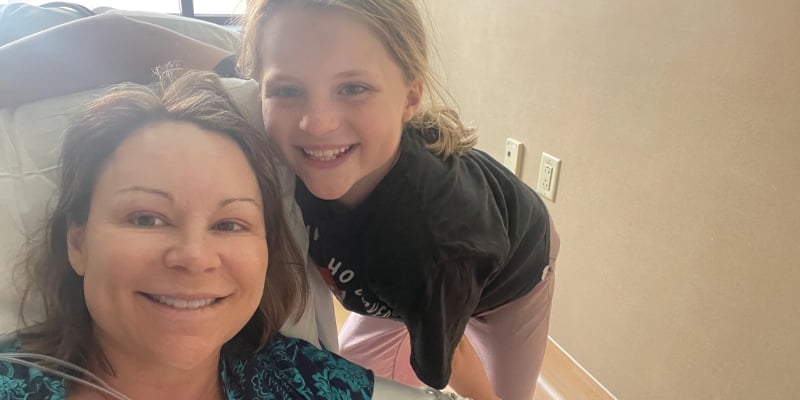Kathy Bruning, BSN (1978), MS has great memories of her time attending the University of Colorado College of Nursing, formerly the School of Nursing in Denver.
“I have so many memories to choose from, between the overall experience to the relationships I formed at CU, and the feeling of being a part of something big and something worthwhile,” Bruning says. “I’ve made some lifelong friends during my time at the College of Nursing.”
Bruning grew up in Montana and came to Colorado because her husband went to CU Boulder for graduate school. She says faculty were accommodating of her and other married nursing students. They created a carpool and faculty created special clinicals, including one at the Adventist Hospital in Boulder.
“We were also guinea pigs for a new, cutting-edge curriculum,” she says. “CU Nursing integrated a lot of specialties into the general nursing curriculum. We were paired with first-year med students, so we did clinicals and seminars together. We also were part of a program that paired us with expectant mothers and followed them through the labor and delivery process.”
Bruning was also taught by Dr. Jean Watson, who is one of CU Nursing’s Living Legends as designated by the American Academy of Nursing.
“She was an outstanding faculty member,” Bruning said. “We were proud to claim her as she developed her Caring Theory and became famous. later in her career, Dr. Watson acknowledged us and remembered us in future interactions.”
Bruning says she was able to attend the College of Nursing's bachelor's program because she applied for scholarships. She says she was hoping for a few hundred dollars. Instead, she received grants and loans that exceeded her expectations.
“The loan was forgivable if I worked in a certain area after graduation, which I did,” Bruning says. “I started paying back the forgivable amount in the form of contribution to CU Nursing’s scholarship funds, which I do every year.”
Settling in Wisconsin and Staying Involved in the Nursing Community
After graduation, Bruning and her husband worked in New Mexico and California before settling in Waukesha, Wisconsin, a suburb of Milwaukee more than 30 years ago. Bruning has worked in different healthcare fields, including hospitals, home care, and home hospice. Bruning also spent a few years running a grief support group before she decided to pursue a master of science in nursing from the University of Wisconsin-Milwaukee with a CNS focus.
“I had been out of the workforce for a while taking care of my son, and I wanted to find a way to get back in,” she says. “I did some reading and was struck by the description of CNS as a higher level of nursing. It worked out for me because of my interests.”
After earning her master’s degree, Bruning got involved with the Wisconsin Association of CNSs (WIACNS). The organization developed from a previous special interest group of the Wisconsin Nurses Association. WIACNS promotes CNS practice and supports its members through networking, continuing education, and advocacy.
Bruning was instrumental in developing the organization’s structure as a member of its steering committee. She also helped raise some initial funds to enable early activities, such as presenting a day-long conference, which has continued annually since. She is currently the organization’s secretary and heads its scholarship committee.
“I have developed close relationships with dozens of nurses of varied backgrounds, served in leadership positions at the local level, and developed connections with political leaders to promote and advocate for actions to advance nursing at all levels,” she says. “It feeds my need to make a difference wherever I can, at whatever level I am at – direct patient care, with small groups of nurses and others, and at the system level – which encompasses the ’spheres of influence’ that describes CNS practice.”
Although retired from the workforce, Bruning says it’s important to stay involved with WIACNS and to continue her education through conferences and other CE offerings. “It’s part of a life-long learning mindset that was instilled during my time at CU Nursing and by working in the health care field.”
Bruning doesn't consider herself a “retired” nurse. “I will always be a nurse, and involved with advancing the profession in some capacity, thanks to the foundation I received at CU.”


